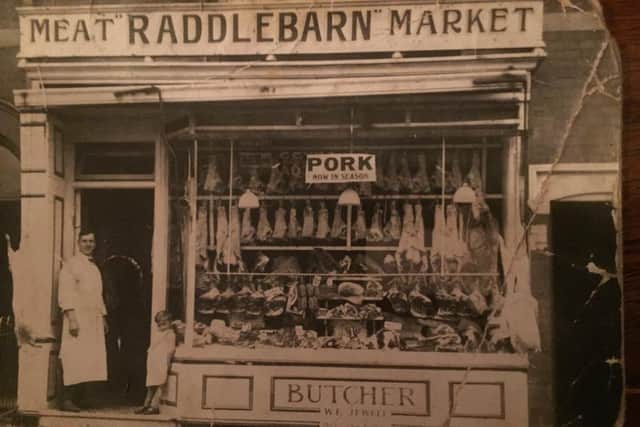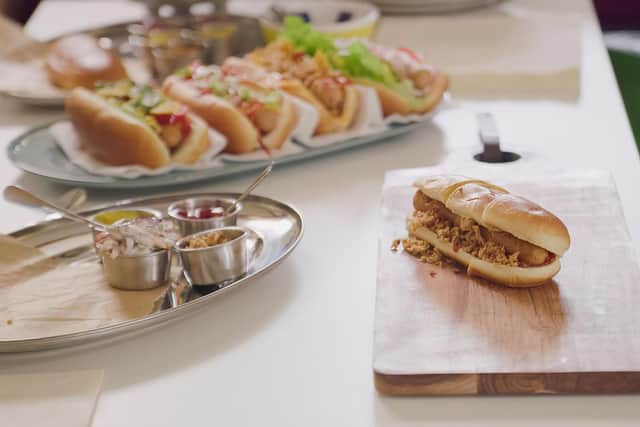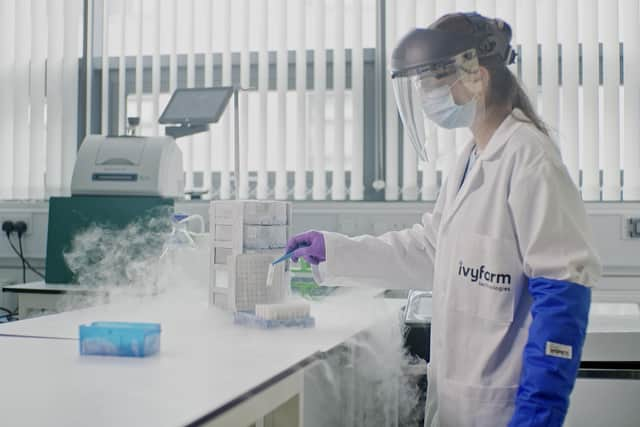COP26: How lab-grown meat could help save the planet and end suffering for factory-farmed animals
So what if you could eat meat but cut out intensive factory farming, methane emissions and mass deforestation – and without killing any animals?
Sounds impossible, but that is the aim of Ivy Farm, a new spin-off company from Oxford University, which has plans to produce lab-grown meat on a commercial scale.
Advertisement
Hide AdAdvertisement
Hide AdChief technical officer and co-founder Dr Russ Tucker, who comes from a family of butchers, admits he is an avid carnivore but worries about meat’s ecological footprint.
Speaking at COP26, he said: “Meat has been in every meal for me, that’s what I’ve grown up on and it’s what I continue to do.
“I love meat, that’s the reality.
“But discovering some of the statistics around animal agriculture, it was quite sad to think what that means for a meat-eater.
“Alternatives are available, but I think it’s quite difficult to shift over to that.


“A lot of us are finding ways to be a bit more flexitarian in our diets, but the whole idea of cultivated meat is that you have to hit the taste and the quality, otherwise what’s the point.
“We’re providing real meat, just grown in a different way.”
Rearing of livestock generates 14 per cent of global greenhouse gas emissions, similar to the amount created by all transport put together.


The livestock sector generates a seventh of global greenhouse gas emissions and is responsible for a third of all freshwater consumption.
Meanwhile, more than a quarter of the world’s land area is used to graze or grow food for farm animals.
Advertisement
Hide AdAdvertisement
Hide AdIndustrial meat production is the single biggest cause of deforestation globally, with vast swaths of woodlands being cut down to make way for pastures.
Tucker, a trained biomedical engineer, believes lab-grown, “slaughter-free” flesh is the future for mass-produced meat products, offering an alternative to inhumane factory farming and environmentally harmful practices.


Cultivated meat is grown in bioreactor tanks from cells harvested painlessly from a live animal, and requires only a fraction of the land and water needed to rear livestock.
No veterinary medicines are needed and little waste is produced.
Factories can also be set up anywhere, including urban centres and brownfield sites, bringing food closer to where it is eaten and so avoiding transport emissions.
Ivy Farm is currently creating pork mince, which can be used to make sausages, burgers, meatballs and the like.
But it is possible to grow any kind of meat, including fish.


“It has passed my taste test, and I promise you mine is a high standard because of my background,” said Tucker.
“The real taste test will be my dad, who was a butcher.
“That’s what we’re aiming for – the meat-lovers.
Advertisement
Hide AdAdvertisement
Hide Ad“We want to make it easy for them to switch from conventional meat to cultivated meat.”
Products are still in development but it is hoped to scale up as soon as food standards consents are granted.
The firm hopes to produce 12,000 tonnes a year by 2025, enough to feed 150,000 people.
It also plans to open an urban farm in Oxford in 2023, offering visitors the opportunity to sample the goods.
A message from the Editor:
Thank you for reading this article. We’re more reliant on your support than ever as the shift in consumer habits brought about by coronavirus impacts our advertisers.
If you haven’t already, please consider supporting our trusted, fact-checked journalism by taking out a digital subscription.
Comments
Want to join the conversation? Please or to comment on this article.
